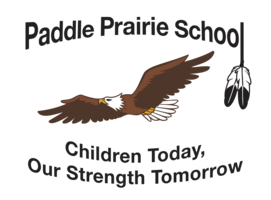Positive Literacy Results for Northland Schools

Northland School Division No.61’s (NSD61) long term vision for the division-wide Literacy Initiative is coming to fruition after three years. Gail Sajo, Literacy Supervisor, presented the latest progress report to the Northland Board on June 26th. The presentation illustrated short-term and long-term student growth when it comes to reading. The long-term picture is positive when comparing year 1 and year 3 percentages for students reading at grade level. Since October 2013, the number of students reading at grade level in grades 1-8 has increased by 19 percent. Sajo says she is pleased with immediate gains as well.
“We are pleased to see a large majority of students are achieving a year’s growth or more when it comes to reading comprehension,” said Sajo. “It’s important to note that kindergarten students have begun the process of reading growth as a result of the teachers understanding the students’ specific strengths and needs based on the Early Years Evaluation (EYE). Our kindergarten teachers have been involved in online and face to face early literacy training.”
“The Literacy Initiative is moving in the right direction,” said Donna Barrett, Superintendent of Schools. “Even though we fell short of our 10 percent division goal to increase in the number of students reading at grade level from June 2014 to June 2015, we are pleased to see steady growth from year 1 to year 3.”
When asked about the next steps during the Board Meeting Sajo says support, community engagement and staying the course are critical.
“We need to help teachers better utilize literacy strategies and hire additional support,” said Sajo. “This will lead to more student growth and allow staff to dedicate more time towards promoting literacy understanding to parents, elders and community members.”
Moving forward to next year, principals will continue to work with staff to follow a literacy plan that includes assessing reading level of students three times per year, utilizing writing evaluations, integrating additional First Nations, Métis and Inuit (FNMI) materials and hosting literacy events to involve the community. The Literacy Focus Group, which was assembled in 2014, will continue to monitor growth, mentor teachers, make recommendations and guide the process.
Click here to view Media Release.
